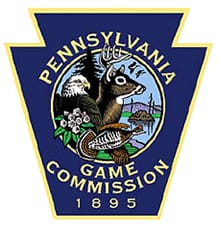

| Online: | |
| Visits: | |
| Stories: |

| Story Views | |
| Now: | |
| Last Hour: | |
| Last 24 Hours: | |
| Total: | |
Time to Sign up For Pennsylvania Pheasant Chick And Egg Programs
(Before It's News)

Pennsylvania -(Ammoland.com)- Sportsmen’s organizations with approved propagation facilities can augment local ring-necked pheasant stockings and increase localized hunting opportunities by raising day‑old pheasant chicks supplied free-of-charge by the Pennsylvania Game Commission.
Information and applications to participate can be downloaded from the agency’s website (www.pgc.state.pa.us), by putting your cursor over “Hunt/Trap” in the menu bar at the top of the homepage, then clicking on “Hunting” in the drop-down menu listing, then selecting “Pheasant” in the “Small Game” listing, and then clicking on “Cooperating Sportsmen’s Clubs Pheasant Chick Program.” In order for Game Farm superintendents to plan and set hatches to accommodate requests, the Bureau of Wildlife Management must receive completed applications by March 31.
In 1929, the Game Commission began the propagation of pheasants on an extensive scale with the establishment of two game farms. Over the next six decades, to offset the increasing demand from hunters for pheasants, three other farms were placed into operation, and the day‑old pheasant chick program was implemented and made available to sportsmen’s organizations, 4‑H clubs, farmers, and other cooperators for rearing and releasing on areas open to public hunting.
In 1959, the number of pheasant chicks distributed to cooperators reached 229,685, an all-time high, in addition to the more than 88,500 pheasants raised and released by the agency. Unfortunately, cooperator participation has dwindled significantly over the last few decades. In recent years, only a dozen or so clubs have participated; raising and releasing 4,000 to 5,000 birds. Since 2012, the Game Commission has raised and released more than 200,000 pheasants annually.
Wayne Laroche, Game Commission Bureau of Wildlife Management director, said the agency provides, free of charge, day-old pheasant chicks to clubs entering into an agreement with the Game Commission to raise birds and promote recreational hunting on lands open to public hunting. Gender is not determined as the chicks are boxed for distribution, but the chicks generally are at a one-to-one male/female ratio. The number of chicks received depends on the size of the club’s facility. The agency will provide enrolled clubs with plans for a brooder building, covered pen, and guidelines for rearing pheasants.
“The agency also offers enrolled organizations technical assistance and advice at the club’s facility, and a training session and overview of agency game farm operations can be scheduled during the off‑season from January through March to assist in development of the club’s program,” Laroche said.
To be eligible to receive pheasant chicks, a sportsmen’s club is required to have a minimum of 25 square feet of covered pen space available per bird. In addition, 72 square inches of floor space per chick is recommended in the brooder building. All feed and expenses incurred in the work of constructing covered pens and raising pheasants will be the responsibility of the club. All pheasants propagated by organizations must be released on lands open to public hunting.
Pheasant chicks can be raised at the cooperator’s facility or by a designated caretaker with the proper facilities.
“We recommend releasing some hen pheasants in early September in areas where habitat is sufficient to provide food and cover,” Laroche said. “These birds can provide good dog training opportunities and releasing hens early also provides additional room in the pen to finish growing out the males for the hunting season. Maximum recreational opportunities can be attained by releasing male pheasants as close to the opening of small game season as possible.”
Game Commission pheasant hatches come off once a week during the month of May, and the chicks for clubs will be scheduled into those hatches. Game farm superintendents will send notification to approved organizations when chicks will be ready for pick‑up.
The Game Commission requires a complete report of the production and release results. Renewal applications will not be processed unless a complete report has been filed for the prior year.
In addition to the cooperating sportsmen’s club program, the agency also sells day-old hen pheasant chicks and surplus eggs in lots of 100 chicks for $60, or 300 eggs for $180. Applications for chick and egg sales must be received by the supplying Game Commission game farm by March 31, and early requests receive top priority. Both eggs and chicks must be picked up at the supplying game farm. Applicants who intend to sell, barter or transfer possession for purposes other than releasing on lands available for public hunting are required to have a Game Propagators Permit. Contact the Game Commission’s Special Permits Division (717-783-8164) regarding propagation permits.
Applications to purchase day-old hen pheasant chicks or surplus pheasant eggs also can be downloaded from the agency’s website (www.pgc.state.pa.us), by putting your cursor over “Hunt/Trap” in the menu bar at the top of the homepage, then clicking on “Hunting” in the drop-down menu listing, then selecting “Pheasant” in the “Small Game” listing, and then clicking on “Day Old Pheasant Hen Chick & Surplus Egg Program.”
The pheasant is native to Asia. Recorded attempts to establish pheasants in North America date back to the mid-1700s. These early attempts were unsuccessful; it wasn’t until 1881, in the Willamette Valley of Oregon, that pheasants first became established.
During the early 1890s, Pennsylvania citizens purchased pheasants from English gamekeepers and released them in Lehigh and Northampton counties. For several decades many other small releases were made across the Commonwealth to establish pheasants for sport hunting.
In the early 1900s, the Game Commission set aside a special appropriation of funds to purchase and propagate game. Pheasant eggs were purchased and given to agency refuge keepers, sportsmen’s organizations and private individuals interested in raising pheasants.
The first stocking of pheasants by the Game Commission occurred by 1915.
Source: http://www.ammoland.com/2016/01/257244/


